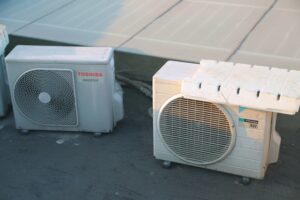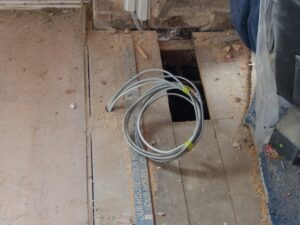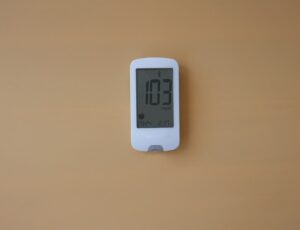If you’re in the market for a new water heater, you may be wondering if an electric tankless water heater is the right choice for you. Electric tankless water heaters are known for their energy efficiency and cost savings, making them a popular option for both residential and commercial properties.
One of the main benefits of electric tankless water heaters is their energy efficiency. Unlike traditional water heaters that constantly heat and store water, tankless water heaters heat water on demand, which can result in significant energy savings. Additionally, electric tankless water heaters are often less expensive to operate than gas-powered models, making them a great choice for those who want to save money on their utility bills.
Here at Excel Mechanical, we understand that choosing a new water heater can be overwhelming. That’s why we offer expert installation services to ensure that your new electric tankless water heater is installed correctly and functioning at its best. With our exceptional quality and great value, we’re confident that we’re the best option for all your plumbing needs.
Understanding Electric Tankless Water Heaters
If you’re looking for a way to save space and money, a tankless water heater might be the right choice for you. With no need for a large storage tank, these systems are energy-efficient, space-saving, and eco-friendly. In this section, we’ll explore how electric tankless water heaters work, the benefits of going tankless, and the differences between electric and gas tankless water heaters.
How Electric Tankless Water Heaters Work
Electric tankless water heaters work by heating water as it flows through the unit, rather than storing hot water in a tank. When you turn on a hot water tap, cold water enters the unit and is heated by electric coils before it flows out of the tap. The unit is designed to turn on and off automatically, meaning it only uses energy when hot water is needed.
Benefits of Going Tankless
One of the biggest benefits of going tankless is the potential for energy savings. Since electric tankless water heaters only heat water when it’s needed, they can be more efficient than traditional tank-style heaters. This can translate to lower energy bills over time. Additionally, tankless water heaters are typically more compact than traditional heaters, making them a good option for homes or businesses with limited space.
Electric vs. Gas Tankless Water Heaters
While electric and gas tankless water heaters both offer benefits, there are some key differences to consider. Electric tankless water heaters tend to be more energy-efficient, but they may not be able to keep up with high demand for hot water. Gas tankless water heaters, on the other hand, can provide a higher flow rate, but they may not be as energy-efficient. Additionally, gas tankless water heaters require a gas line, which may not be available in all homes or businesses.
Selecting the Right Size and Capacity
When selecting the best electric tankless water heater, it is crucial to choose the right size and capacity. The size of the tankless water heater you need depends on your hot water needs, the number of people in your household, and the maximum flow rate required.
Determining Your Hot Water Needs
Before you choose a tankless water heater, you need to determine your hot water needs. This involves calculating the number of fixtures in your home that require hot water and the maximum flow rate required by each fixture. Some of the common fixtures that require hot water include showers, washing machines, and faucets.
Calculating Flow Rate and Temperature Rise
To determine the maximum flow rate required by each fixture, you need to calculate the flow rate and temperature rise. The flow rate is the amount of water that flows through the fixture per minute, measured in gallons per minute (GPM). The temperature rise, on the other hand, is the difference between the incoming cold water temperature and the desired output temperature.
To accurately size your tankless water heater, add up the flow rates of all fixtures that may be used simultaneously. This will give you the total GPM required, which is essential for selecting a unit with the right capacity.
Key Features and Technologies
When it comes to electric tankless water heaters, several key features and technologies can make a big difference in terms of performance and efficiency. In this section, we’ll take a closer look at some of the most important features to consider when choosing a tankless water heater for your home or business.
Advanced Flow Control and Modulation
One of the most important features to look for in an electric tankless water heater is advanced flow control and modulation. This technology allows the unit to adjust the flow rate and power output based on the demand for hot water, ensuring that you always have a steady supply of hot water without wasting energy or water.
Self-Modulating Technology
Another key feature to consider is self-modulating technology, which allows the unit to adjust its power output based on the flow rate and temperature of the incoming water. This helps to ensure that the unit is always operating at maximum efficiency, while also reducing the risk of overheating or damage to the unit.
Digital Displays and User Interfaces
Many modern electric tankless water heaters also come equipped with digital displays and user interfaces, which allow you to easily monitor and adjust the performance of your unit. This can be especially useful for tracking energy usage and making sure that your unit is operating at peak efficiency.
Installation and Maintenance Considerations
When installing an electric tankless water heater, you have two options: professional installation or DIY. While DIY installation may seem like a cost-effective option, it is not recommended unless you have experience in plumbing and electrical work. A professional installation ensures that the unit is installed correctly and up to code, preventing any potential safety hazards.
Regular maintenance is crucial to ensure the longevity and optimal performance of your electric tankless water heater. Flushing the system at least once a year is recommended to remove any sediment buildup and prevent clogs.
Addressing hard water and sediment is also important for the maintenance of your electric tankless water heater. Hard water can cause buildup and sediment can clog the unit, resulting in decreased efficiency and even damage.
Top Electric Tankless Water Heater Reviews
If you’re looking for an energy-efficient way to heat water for your home or business, an electric tankless water heater might be the right choice for you. Here are our top three recommendations for electric tankless water heaters:
Stiebel Eltron Tempra Plus
Stiebel Eltron is a well-known brand in the world of tankless water heaters, and the Tempra Plus is one of their most popular models. This unit is designed to be compact and easy to install, making it a great option for small homes or apartments. It is also very energy-efficient, which can help you save money on your energy bill over time. The Tempra Plus is built to last, with a durable design that can withstand years of use.
EcoSmart ECO 27
Another great option for an electric tankless water heater is the EcoSmart ECO 27. This unit is designed to be affordable and energy-efficient, making it a great choice for budget-conscious homeowners. The ECO 27 is also very durable, with a rugged design that can withstand years of use. With its compact size and easy installation process, this unit is a great choice for small homes or apartments.
Rheem RTEX-13 and RTEX-18
Rheem is another well-known brand in the world of tankless water heaters, and the RTEX-13 and RTEX-18 models are two of their most popular options. These units are designed to be energy-efficient, which can help you save money on your energy bill over time. They are also very durable, with a rugged design that can withstand years of use. With their compact size and easy installation process, these units are a great choice for small homes or apartments.
When choosing the right electric tankless water heater for your home or business, there are many factors to consider. You want a unit that is energy-efficient, affordable, and durable. Get in touch to discuss your next steps.




